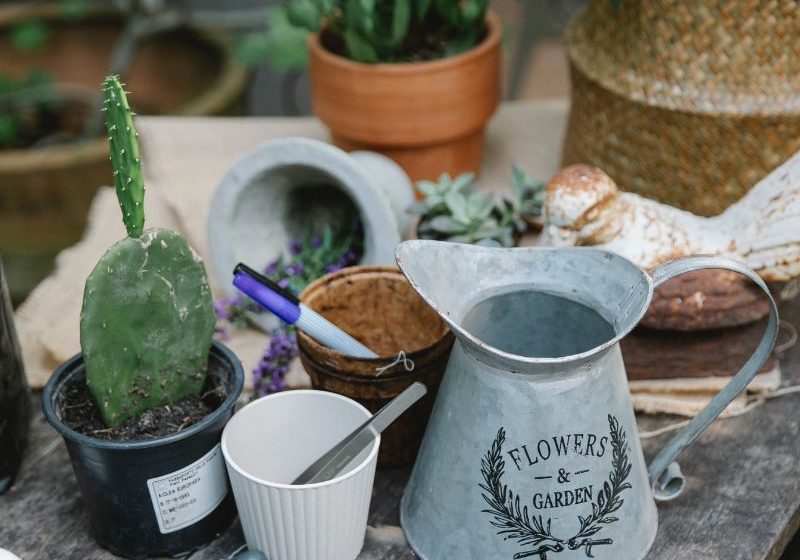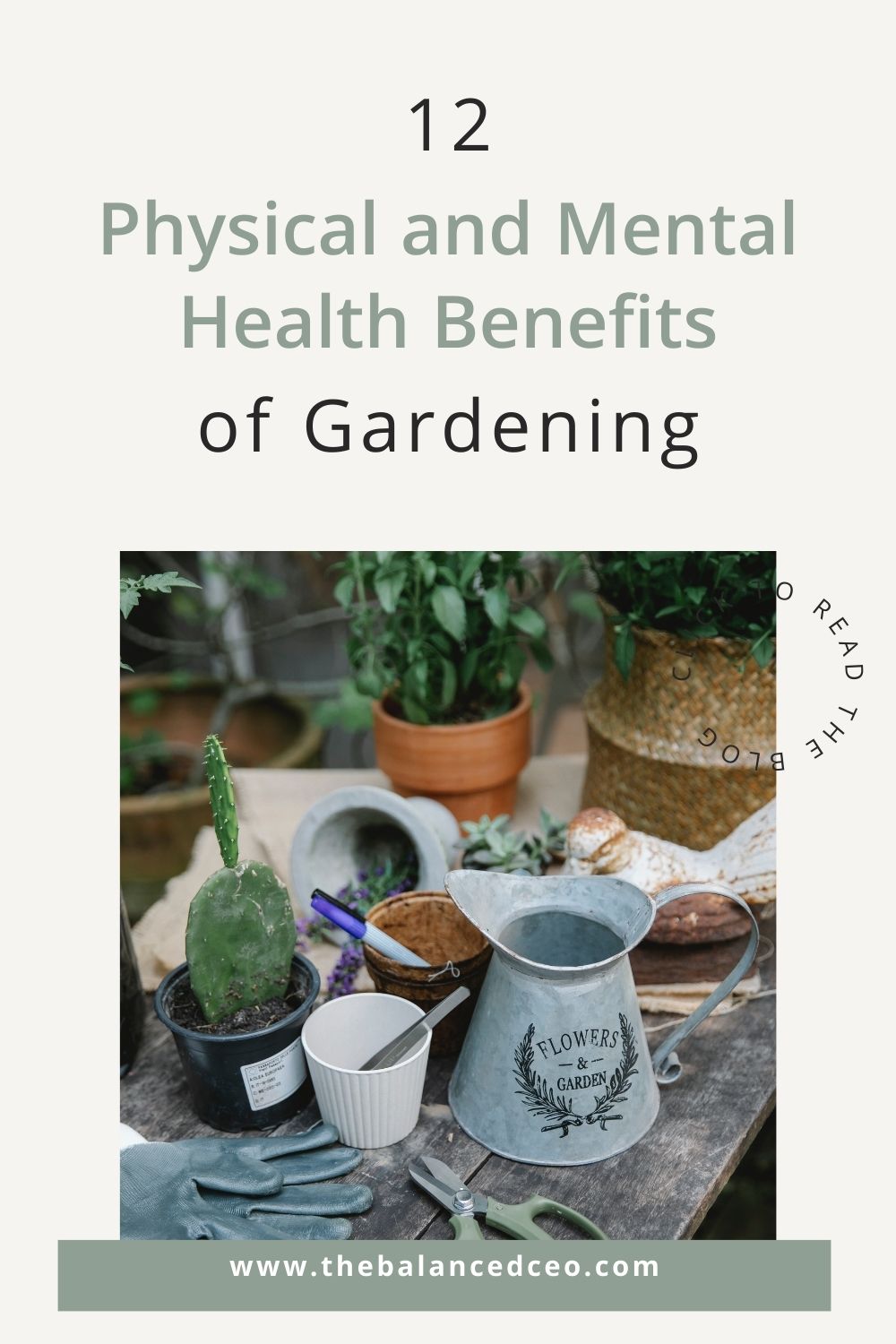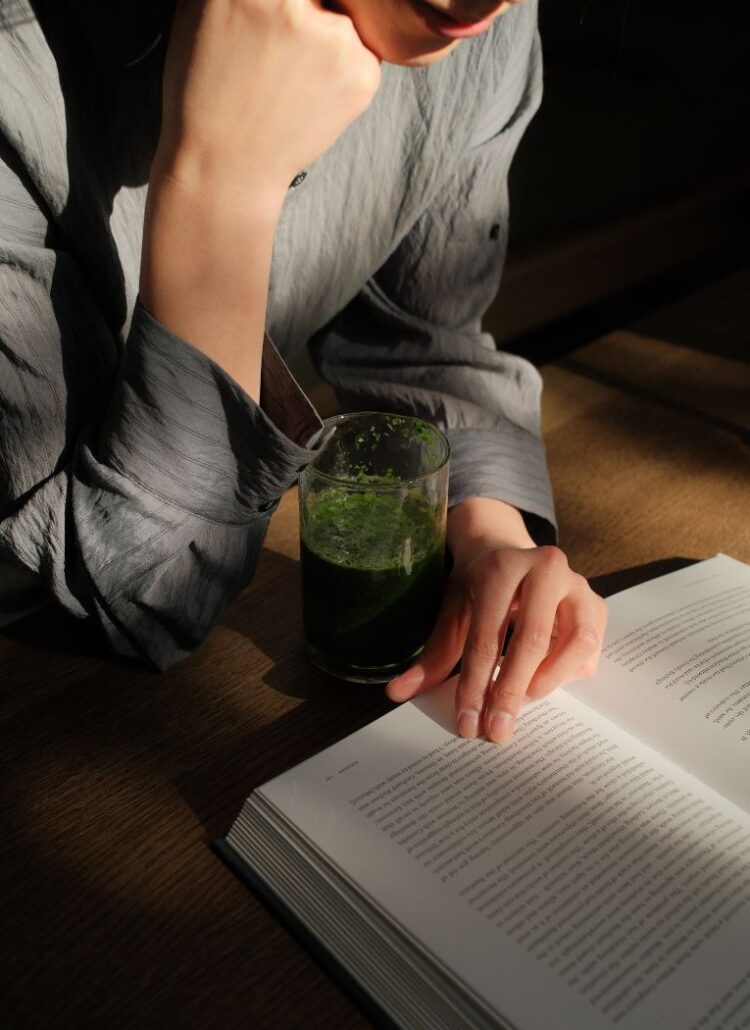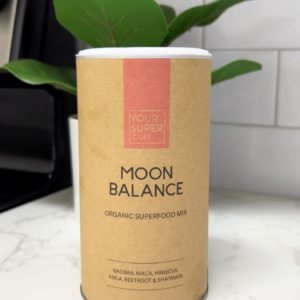This post may contain affiliate links, which means I’ll receive a commission if you purchase through my links, at no extra cost to you. Please read full disclosure for more information.

Gardening is one of the oldest and most therapeutic activities practiced by humans. Nothing compares to the experience of tending a garden and watching plants thrive under your care. This experience alone is reason enough for you to take up this activity but also has many physical and mental health benefits.
There are plenty of reasons to strengthen your green thumb. Here are some of the physical and emotional improvements you can expect to see after taking up gardening.
Physical Health Benefits of Gardening
Gardening is a methodical and low-intensity activity, but it’s still an effective form of exercise and helps you spend more time outdoors. People of all ages can reap the physical health benefits it offers.
1. Strengthens the Immune System
Gardening exposes you to viruses, bacteria and allergens. Moderate exposure to germs strengthens the immune system and prevents sickness, especially in young children. People are vaccinated so their bodies can ward off certain diseases, and the concept is the same with gardening.
Gardening also tends to be a dirty activity, which is good for your immune system. Being clean all the time leads to hypersensitivity. You shouldn’t shy away from getting your hands dirty occasionally.
2. Improves Your Muscle Strength
Although gardening isn’t an intense activity compared to other forms of exercise, it still stimulates and strengthens your muscles. Whether tilling the earth, carrying bags of mulch or shoveling dirt, gardening keeps you moving and forces your muscles to stay engaged.
Gardening specifically improves your grip strength due to all the planting and pulling. This is strongly associated with better overall health as you get older and your muscles naturally weaken.
3. Improves Your Flexibility
Your muscles, joints and ligaments will also become more flexible thanks to gardening. This activity often puts your body in awkward positions. You’re constantly bending and stretching, so it’s almost like a freestyle form of yoga. Maintaining mobility is crucial for your overall health during the aging process.
4. Supports Heart Health
Gardening supports heart health, much like other low-intensity activities like yoga and swimming. It slowly increases your heart rate and gives your cardiovascular system a healthy challenge. Gardening is a great hobby for people struggling with heart disease, which affects about 20 million adults in the United States alone.
5. Gives You More Sun Exposure
Gardening provides sun exposure, which is extremely beneficial in the right doses. Just 15-30 minutes of sunlight daily can improve your vision, increase your vitamin D levels, prevent certain autoimmune diseases and rebalance your sleep schedule. Most people spend way too much time inside these days. Gardening can help them get out more.
6. Helps You Eat Healthier
Gardening is a great way to eat healthier. You can start growing fruits, vegetables and edible weeds to completely change your diet and shrink your grocery bill. Growing edible plants also increases your garden’s nutritional value and helps all the other plants thrive. It’s a win-win situation for every organism involved.
Mental Health Benefits of Gardening
Gardening is a time-consuming task that often requires patience and precision. It can be frustrating at times for people who weren’t blessed with green thumbs. However, the challenges gardening brings to the table will make you mentally stronger in several ways.
1. Relieves Stress
Gardening is one of the best activities to connect with nature and relieve stress. Extra exposure to sunlight will also increase your serotonin levels, which is the “happy” chemical that regulates moods.
Since gardening is largely a self-sufficient activity, it also gives you a greater sense of personal agency. Feeling powerless is one of the main causes of anxiety and depression. Gardening empowers you to tackle challenging tasks on your own, which decreases stress.
2. Builds Self-Esteem
Your self-esteem will improve as you overcome gardening obstacles and develop your green thumb. Nothing is more effective at increasing your confidence than accomplishing new tasks and achieving your goals. If you can make a garden thrive, you can do many other wonderful things.
Plants aren’t the only things that grow in your garden. Every time you see a flower bloom or a healthy vegetable sprout up, you also grow as an individual. Cultivating the earth and helping plants reach their full potential has a powerful effect on your state of mind.
3. Improves Your Memory
Like other forms of exercise, gardening improves your memorization skills by stimulating the memory-related nerves in your brain. This benefit is why gardening is a fantastic activity for older folks. It keeps their minds sharp and reduces the symptoms of late-onset dementia. Horticulture therapy is very common in nursing homes and retirement communities.
4. Boosts Your Problem-Solving Skills
Spending more time in nature also boosts your problem-solving skills and makes you more creative. Gardening is a challenging hobby with many small, detail-oriented tasks. It will constantly keep you busy and give you new problems to solve, whether dealing with pests, weeds, bad weather conditions or unhealthy soil. You will learn ways to circumvent these issues and improve your gardening skills.
5. Strengthens Social Bonds
Gardening is always more enjoyable with friends and family. Growing plants together is one of human history’s oldest forms of social interaction. It will help you strengthen the bonds with your loved ones and develop a shared interest. Gardening is also a great way to relieve tension with others and create healthier, stronger relationships.
6. Helps With Addiction Recovery
Gardening is a highly effective rehabilitation tool for recovering addicts. Research has shown that being around plant life increases the prevalence of positive feelings among people recovering from alcohol addictions. This result should come as no surprise. Gardening brings us back to our natural habitats and distracts us from stressful times.
Additional Benefit: Supporting the Ecosystem
A positive aspect of gardening that often goes unnoticed is its role in supporting the local ecosystem, particularly honey bees. Honey bees play a significant role in pollination, an essential process for fruit and seed production. Engaging in gardening can help you contribute to the well-being of these honey bees by providing them with various flowering plants for nectar and pollen gathering. Planting a bee-friendly garden can also increase your plants’ productivity due to their enhanced pollination, showcasing a perfect symbiotic relationship. Therefore, gardening doesn’t just promote individual health and wellness but contributes to ecological health, making it a truly holistic activity.
Gardening Can Change Your Life
Imagine how much your quality of life would improve if you took up gardening. You could experience all these physical and mental health benefits for yourself. Your friends and family would reap the rewards, too. Gardening might seem like a simple recreational activity, but it’s much more than that. It can change your life and add even more to it.

Cora Gold
Contributor
Cora Gold is the Editor-in-Chief of Revivalist magazine, a publication dedicated to happy, healthy, and mindful living.





Leave a Reply